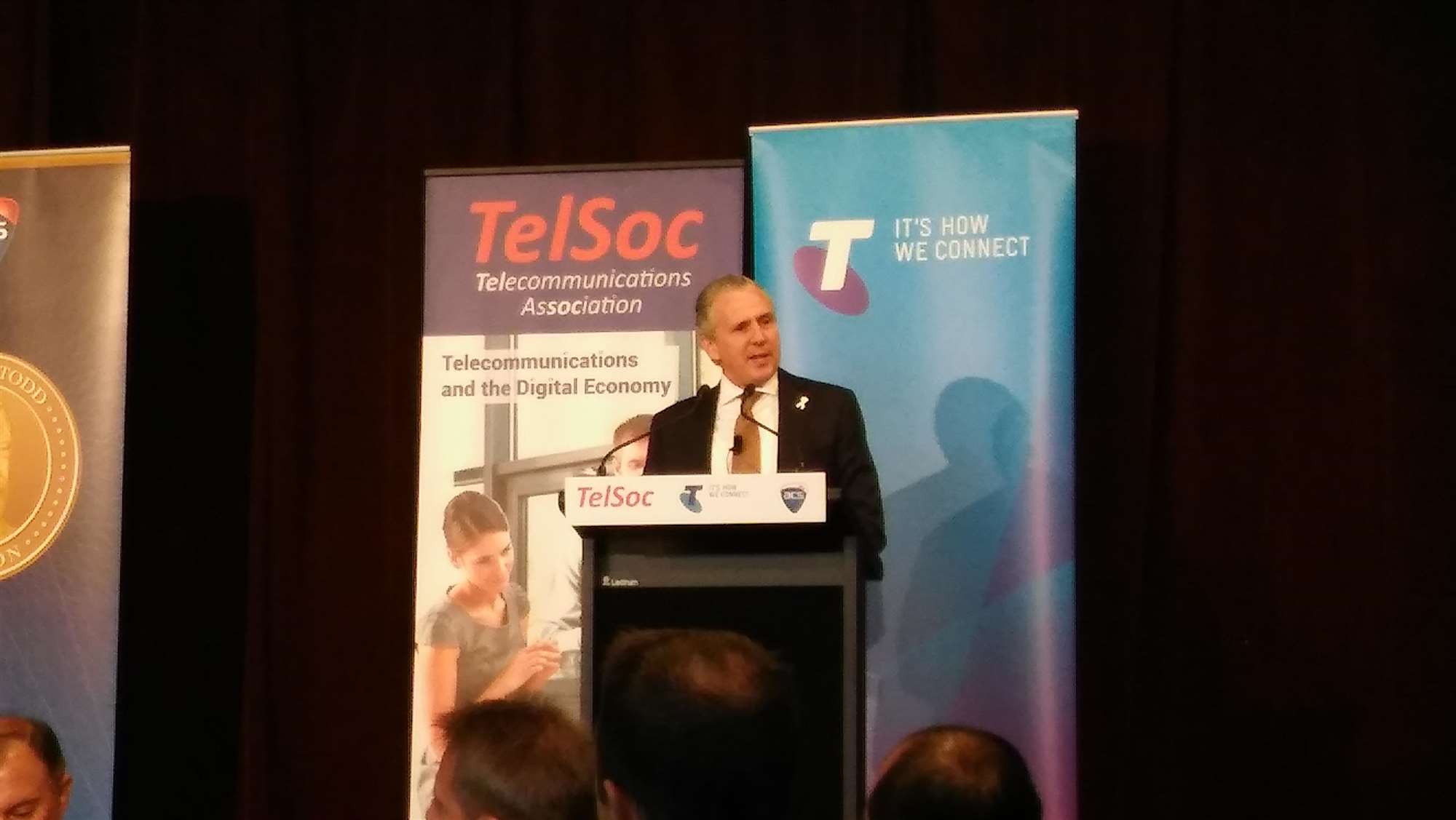Telstra CEO Andy Penn has called for an urgent national rethink on innovation and R&D to prepare Australia for future economic success.
Presenting the 2015 Charles Todd Oration in Sydney, Penn proposed a four-prong model that borrowed from Telstra’s own internal approach to rethinking R&D.
“We all need to get serious about innovation and R&D if we’re going to be successful in the future,” Penn said.
“We need to rethink what innovation looks like and how we approach it as companies and as a nation.
“Far from being intimated, I see great opportunity for us to embrace this change, great opportunity for those of us who embrace technology innovation, and great opportunities for Australian companies and Australia.”
Penn believed the days where companies did their own R&D were “over”.
“That process is just too slow in terms of bringing solutions to the market,” he said.
Borrowing a Silicon Valley phrase, he said it was time to “pivot” from these types of older approaches – and put forward Telstra’s incubation ecosystem strategy as a potential new model.
That model includes:
- Accelerators and early stage support – incubating early ideas and nurturing them to become ideas that change business. Think muru-D and Telstra Ventures.
- Collaboration – “We do not have all the answers,” Penn said. “We have to look outside for innovation and co-create solutions to stay ahead of the game.” He cited Melbourne’s Gurrowa lab and agreements with Data61, Deakin University and others.
- Human capital - developing core and emerging skills that Australia will need in the very near future. Think hackathons and Code Club Australia sponsorship.
- New technologies and methodologies - for example, what carriers like Telstra are already doing in testing early 5G technology.
Penn believed such a model could be more broadly applicable.
“Firstly we need to develop a more comprehensive ecosystem supporting incubation of start-ups,” he said.
“Much has been said about this but the critical point I wanted to make is that the system needs to cross the complete cycle.
“There’s no point building infrastructure for start-ups if we don’t simultaneously create the support for the pre- start-up/incubation phase, or at the same time support for the migration of the start-up into long-term equity markets because investors are different at every stage of the journey.”
Secondly, Penn said, there needed to be more collaboration between the various players, citing Israel’s start-up scene as one that has collaboration right.
“I’m not saying Australia should copy Israel – in fact it’s important that we don’t and we create our own unique innovation ecosystem,” he said. “But the level of collaboration is a key lesson.”
Thirdly, Penn said there was a need to invest in STEM skills and education for future roles.
And finally, he said Australia needed to look what which technologies it could specialise in.
“We need to identify the new technologies and methodologies where we already have some degree of strategic competitive advantage,” Penn said.
“It’s unlikely we’ll be able to lead in every area of technology as we go through.
“However, like Israel which has developed core technology skills in cyber security, there are natural areas of core capability in Australia we can leverage. For example, solar.”
Penn remained hopeful that the Coalition Government would have the focus and expertise to turn Australia into a leader in innovation.
“We welcome the government’s renewed focus on innovation … and without declaring any personal political point of view, can I say that it is exciting that we have a Prime Minister today and a Government that is talking about technology and innovation,” Penn said.
“Our country needs a clear, long-term technology vision.”










